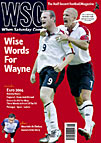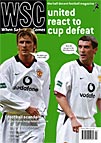 Simon Tyers tells the story of one of this summer's more unique characters
Simon Tyers tells the story of one of this summer's more unique characters
Next June Australia will, more than likely, be officially anointed as 2006’s equivalent of the 1998 Jamaica side, the qualifiers full of unlikely UK-based players that will do in the Republic of Ireland’s absence. All five penalty takers against Uruguay have played in England, as has (and does) keeper Mark Schwarzer. The Boro man’s understudy, Zeljko Kalac, has played here, too, but is a rather more unlikely World Cup player, from the point of view of many in Leicester.


